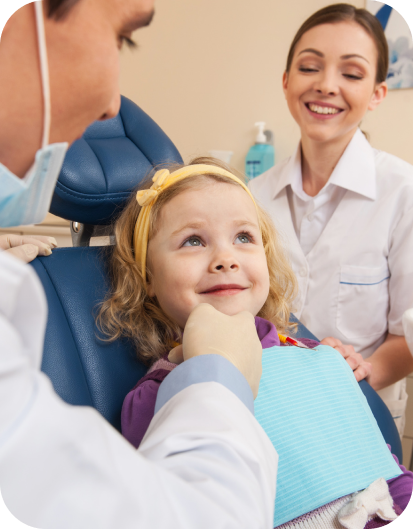Sedation Dentistry
It’s normal for you to suffer when your child is in pain. Sometimes, just the thought of putting kids through a painful dental procedure is overwhelming. That’s why pediatric sedation dentistry is such an ideal option. Your expert child dentist at Tiny Smiles Pediatric Dentistry — in Woodbridge, NJ, Harlem, NY and the Lower East Side of Manhattan — relies on sedation dentistry in the form of nitrous oxide conscious sedation, laughing gas for kids and IV sedation to relax and make your child comfortable for the treatment needed. Call the best pediatric dental team in New Jersey and New York City today for an appointment.

What Is Pediatric Sedation Dentistry?
For anxious or fearful children, those with special needs, ones in urgent care, or children having lengthy or multiple procedures, pediatric sedation dentistry offers a safe drug th-erapy. It enables dentists to perform procedures such as filling cavities or extracting tee-th with the least possible discomfort. Minimal conscious sedation is the most common, which allows your child to breathe naturally and respond normally to physical stimuli and verbal commands.
At Tiny Smiles Pediatric Dentistry specially trained, highly qualified pediatric dentists and staff conduct a pre-sedation physical and dental evaluation to assess your child’s needs and align their findings with the length and invasiveness of the dental procedure. For your child to feel more comfortable and relaxed during a dental procedure, your pediatric dentist may use oral pediatric sedation, laughing gas for kids or IV sedation.

What Happens When My Child Gets Drowsy?
As a parent, it’s normal if you experience discomfort watching your child being given sedation. Be mindful that your child can sense your concern, so remain as
calm and reassuring as you can by touching your child’s arm or leg, and even wh-ispering comforting words. During the procedure, you may be asked to wait in the waiting room.
Remember that the medication doesn’t control pain or discomfort. Rather, the
drugs used in sedation dentistry make your child relaxed. Being in this state he-lps the dentist administer the anesthetic used for numbing the area in the mou-th to be worked on and ease anxiety or restlessness during the procedure. Also note that:
What Happens After Sedation?
After pediatric sedation dentistry, your child may feel groggy, experience nausea, lose some physical coordination or even have the giggles. The effects are short-lived and pass within a day. Watch for any sign of gums excessively bleeding, overt nausea or vomiting, severe pain or high fever. Contact your dentist immediately if your child experiences any of these symptoms.
Be mindful that rest and special care are called for after the procedure. Your kid may require constant adult supervision, so it’s advisable to have your child stay home from school for the rest of the day to recuperate. Your dental team advise you to:
- Monitor your child after the procedure
- Offer lukewarm or room temperature soft foods to avoid oral discomfort


